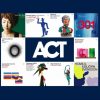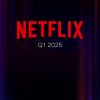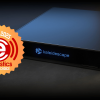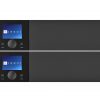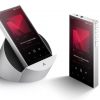Deciding what smartphone buy has become less about the hardware and more about the software — mainly the operating system the phone runs on. We'll take a look at the major features and differences between the latest versions of Google's Android, Apple's iOS, Microsoft's Windows Phone 7 and RIM's BlackBerry OS.
Google Android 2.3
The rise of Android has been gradual but now with more than 200,000 apps available on the Android Market the platform can be safely called mature. Version 2.3 of Android arrived recently in tandem with the Nexus S smartphone, branded by Google and with Samsung hardware. It retains the key features of its predecessors, namely support for Flash 10.1 content in the native browser, multiple customisable homescreens with widgets and an open source approach which means various manufacturers will be able to add their own skins and software to the mix. Android 2.3 includes Near Field Communication (NFC) capabilities which will allow future smartphones to act as digital wallets, which is a unique feature amongst its peers.
Apple iOS 4.0
Apple has revised iOS 4.0 since it was launched in mid-2010 in tandem with the iPhone 4 and it is still one of the most popular platforms out there, writing the rules on what is necessary for smartphones of today. The biggest update to the existing platform enabled in iOS 4 is multitasking which means several applications can run simultaneously to lessen load times and improve the overall usability.
Microsoft Windows Phone 7
This is the newest addition to the market and it took many by surprised as the business-oriented features of previous Microsoft mobile platforms were ditched in favour of a clean, unified software package. A homescreen which can be populated with special LiveTiles, delivering real time updates from apps, social networking and email services defines the reserved but appealing look and feel of Windows Phone 7. Add to that a growing marketplace for digital downloads, compatibility with Xbox Live for hardcore gamer appeal and a wealth of manufacturer support including HTC and Samsung and this looks like a very attractive option for those who want something different.
RIM BlackBerry OS 6.0
The BlackBerry OS, like iOS, can only be found on handsets from one manufacturer and RIM has been keen to keep up with its major rivals. With version 6.0 it has made sure that there is a greater focus on presenting an experience which is fluid and modern, keeping in line with the public's love of touchscreen technology and social networking with adapted interfaces and unified social hubs. BlackBerry OS 6.0 first made an appearance on the BlackBerry Torch and it allowed the phone to hark back to the business-focused past of RIM handsets as well as staying in touch with modern trends.
In this debate Android is arguably separate from the other operating systems. This is because Google gives individual manufacturers free reign when it comes to customising the user experience, resulting in lauded interfaces like HTC Sense. Microsoft, Apple and RIM keep a tighter grip on the software, meaning a mobile phone running Windows Phone 7 and its peers will behave almost identically. This does mean the market is more fragmented for Android handsets but all price brackets are filled while the others sit at the expensive end of the scale.
by Mobiles.co.uk, a trading division of Carphone Warehouse Limited




